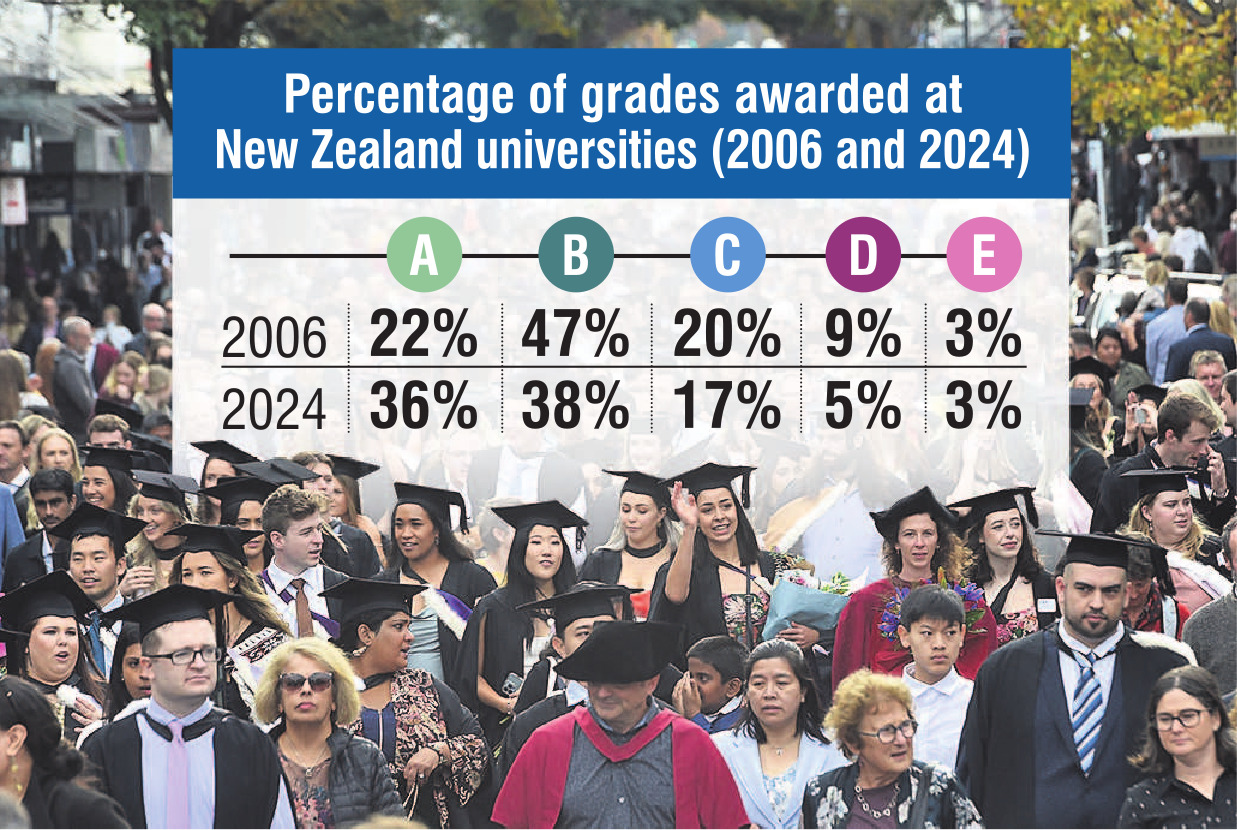
But new research by the New Zealand Initiative has found A grades are now only a few years away from becoming the most commonly awarded grade at New Zealand universities, leaving some concerned about erosion of public trust in higher education.
However, Universities New Zealand says the research reflects 20 years of deliberate work to improve the quality of teaching and qualification at New Zealand universities.
Research author and New Zealand Initiative (NZI) senior research fellow Dr James Kierstead said his "50 Shades of Grades: Grade compression at New Zealand universities" report identified a substantial rise in A grades as well as pass rates.
Official university records from 2006 to 2024 showed the number of A grades being awarded had been growing to the point where they temporarily overtook B grades during Covid-19, and they were on track to overtake B grades permanently within the next few years.
At the same time, every other grade (B-E) had become less commonly awarded.
"That is classic grade compression," Dr Kierstead said.
At the University of Otago, A grades had risen from about 25% in 2006 to about 35% in 2024.
Nationwide, the A through C categories included ordinary, as well as plus and minus grades (A+, A, A-).
But at Otago, the A category also included an "A+ distinction" category as well as the regular A+ category; and a "pass distinction" category alongside "pass" results, he said.
"At our universities, B grades are still the most common grade as of 2024," Dr Kierstead said.
"However, the trend over the last 20 years is that A grades have been slowly catching up with Bs.
"They even temporarily overtook Bs during the Covid-19 period and they are now on track to overtake Bs again within the next few years — perhaps permanently this time."

"This could have kept the number of C grades up in New Zealand, as academics would likely have given some students who might previously have failed a grade in the lowest range."
Dr Kierstead said the gradual changes in the grading system should serve as "a wake-up call" to educational policymakers in New Zealand.
"If something is not done to curb grade inflation at our universities within the next few years, A grades will soon be the most common grade.
"This will put our universities in the same position as universities in the United States, where rampant grade inflation has long undermined public trust in higher education.
"So hopefully this serves as a wake-up call for New Zealand universities."
However, Universities New Zealand chief executive Chris Whelan said the improving grades were the result of work on improving the quality of teaching and qualifications over the past two decades.
"Grades have been increasing, but we have not seen any evidence that this is the result of funding pressures and students putting pressure on teachers.
"We believe grades are rising as the result of decades of work to improve the quality of teaching, better curriculum design, better assessment design and better support around our learners."
He said all of New Zealand’s universities used mechanisms to ensure grades were fair.
Within each university there were examination panels that looked for discrepancies such as overly harsh or overly generous marking and all departments used external examiners.
"Those who employ our students after their degree, and the professional bodies who register them, continue to see our graduates as capable and their grades giving a fair indication of ability."













